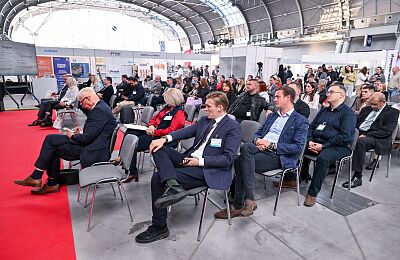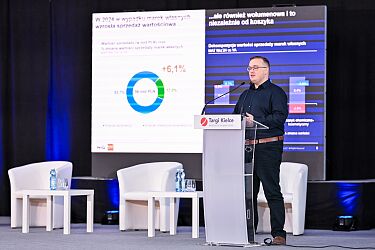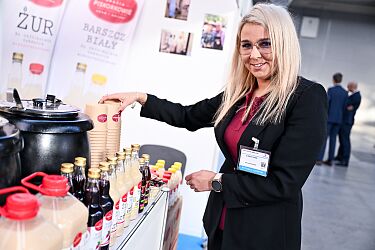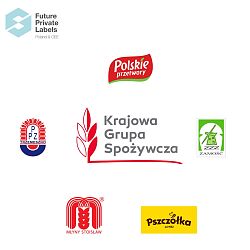News

"Private Labels Strike Back", i.e the future of private labels in Poland. Important message is sent out
Until recently, private labels have been identified with the economy segment. Now private label keeps dynamically entering higher market segments, including the premium category, becoming an increasingly desirable alternative to well-known brands. Producers and representatives of retail chains emphasised that quality has become a key criterion, and long-term success depends on maintaining the right balance between own brands and the offer of popular brands.
The debate participants represented leading companies from various market sectors. Iwona Sarga, president of the Społem National Trading Platform, pointed out the Społem brand's development, which has been on the market for over 12 years and currently offers over 250 products. President Sarga emphasised that cooperation with partners and meeting customer needs as the foundations of the Społem brand strategy. Lukasz Szczesny, Director of Product Development at SPS Handel, emphasised that the private label has become a necessity for many retail chains, pointing out private label role in increasing competitiveness and the ability to adapt to ever-changing customer expectations. Krystyna Domagalska, Head of the Sales Marketing Department at Lewiatan Holding SA, noted that Lewiatan uses a hybrid model. Lewiatan's private label is designed to meet high quality standards while offering affordable prices. Edyta Dembinska, private label manager at SPAR, spoke about SPAR’s strategy, which aims to build private labels in three segments: economy, natural and organic, and premium. The SPAR private label scheme is a part of a global strategy to attract loyal customers by providing a wide selection and high quality.
Maciej Wlodarczyk, Iglotex President of the Management Board emphasised the importance of private labels in the frozen food segment as Iglotex, the leader in frozen food category, implements strategies based on quality. The portfolio is to be competitive with well-known brands. Lukasz Mastalerz, Member of the Management Board of the National Food Group (KGS), pointed out that KGS, which brings together 14 Polish companies, supplies private labels for numerous retail chains, and its portfolio includes brands such as Pszczółka and Trzemeszno. Further expansion of private labels is an important direction for KGS. Marek Bak, Director of Expansion and Development of the Dawtona Group, pointed out that quality and stability are key for his company as private label production allows Dawtona to expand its portfolio and gain customer loyalty. The company strives to maintain a balance between its own offering and the brands for chains.
The conclusions from the debate indicate that private labels in Poland are developing dynamically, and their future lies in the combination of quality, price competitiveness and skilful cooperation between producers and chains. The debate showed that the right balance between private labels and products from recognised manufacturers can benefit both sides. The future of this market looks promising for both producers, retailers, and consumers.
/MŚ/






















